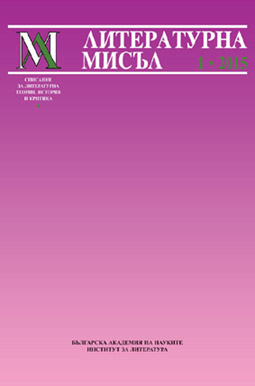Националната мисъл в Европа
National Thought in Europe
Author(s): Joep LeerssenSubject(s): Anthropology
Published by: Институт за литература - БАН
Keywords: European nationalism, national thought, ideology
Summary/Abstract: The survey of the source traditions of European nationalism started with ancient notions of ethnocentrism and exoticism, the separation between self and other, between ordered society and wilderness. Into these ancient attitudes play circulating ‘ethnotypes’: conventional commonplaces regarding the mores and manners of foreign peoples. The relationship between country, population and character is further spelled out as a result of the rise of republican and democratic thought (resulting in the idea that the population (known increasingly as the ‘nation’) is welded into a whole (a ‘public’) by a communal solidarity and by shared civic virtues such as love of the fatherland, and on that basis deserves to exercise a constitutional mandate. At the same time, the notion of culture turns ‘inside out’ from a general one (culture opposing nature) into a comparative-contrastive one (mutually opposing cultures). The concept of nationality gains a political-constitutional importance as well as a defining function in establishing why and how countries and societies differ from each other. These developments and source traditions between them form the root system, the ingredients as it were, of the ideology of nationalism. Over the period 1795-1915, these will be welded together in the pressurized atmosphere of the Napoleonic Wars, and coalesce into that ideology which sees humanity as naturally divided into nations, each with their different culture and character, each deserving a separate nation-based sovereignty, each commanding the overriding allegiance of their members.
Journal: Литературна мисъл
- Issue Year: 2015
- Issue No: 1
- Page Range: 104-137
- Page Count: 33
- Language: Bulgarian
- Content File-PDF

